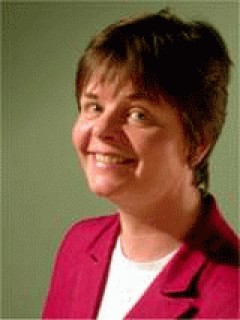Hands up anyone who remembers John Webster’s commercial for The Guardian or the merits of being a Cadbury Fruit and Nut case. Congratulations! You qualify for membership of the advertising research community (Senior Chapter). Motto: ‘Not old, just very wise’.
At the recent MRS Conference, the advertising section was hosted by a venerable array of advertising researchers, all showing enthusiasm for their trade and all over forty. As a contemporary of theirs, I paused to wonder about the state of the advertising researcher market and whether the skills are being passed on to a new generation.
Laurence Green, a partner at Fallon, is quite gloomy on the subject. In particular, he believes that the expertise needed to research advertising content is ‘withering on the vine’. Other research buyers support the view that it is hard to think of significant numbers of younger advertising researchers (beyond specialist youth agencies).
One reason for this happens to be both obvious and positive. This is an area of research where advertising agencies value experience. They like researchers who have worked on many campaigns, developing an understanding of how different types of advertising work.
They need people who have the authority to hold their own in what can be a very bruising battlefield. More specifically, they tend to favour ex-planners. This goes some way to explaining why ad agency personnel can find it hard to think of talented younger advertising researchers.
The number of UK advertising agency planners has declined and their skills set has modified. In the 80s and 90s, many planners still conducted much of their own qualitative research. They, in turn, supported colleagues who left the industry to freelance as researchers.
A cache of expertise was built up, based on very close links between the two sides. Once the planning pool contracted and the business of conducting advertising research became an outsourced activity, however, the firm link between the two was broken.
Of course, many of those individuals who form part of this revered peer group didn’t necessarily train as planners. Chris Forrest is a director of The Nursery, which specialises in advertising research. While he is an ex-planner, the company trains its own young graduate researchers from scratch.
Ironically, they have managed to persuade young people looking to get into account planning that, as Forrest puts it: “qualitative research is still one of the best and most creative parts of the advertising development process.”
As a new breed of consumer experts, media researchers might offer up the next generation of advertising researchers. Green thinks that this is a false dawn, saying that media researchers ‘will still be refreshing the messages and how they are delivered rather than gaining expertise about (assessing) the content of advertising’.
Training young people in the disciplines of advertising research is harder than it was. Historically, fmcg clients were accustomed to putting a raft of scripts into research for their prospective television campaign. There was a purity in the process that made it is easier to develop the sixth sense for successful advertising that characterises a good researcher.
Brands were represented by an advertising campaign. It was a TV campaign. It had a brand-building idea. Advertising research decided whether and how the big idea could be optimised in executional terms. Nowadays, researchers have to contend with the many different elements of a brand campaign, from viral to ambient media.
It must, however, be harder to learn the craft of exploring advertising content and the disciplines of a strategy, an idea and an execution without repeated exposure to the teething ground that is television advertising. The learning curve must be longer, or at least more circuitous.
Ed Garey from Stimulating World Research accepts that researchers who are older than he have the kudos that experience brings. He also reminds us that being able to name-drop famous campaigns we older souls have worked on — and the advertising people we have worked with — doesn’t go amiss in the authority stakes. But Garey believes that there is a strong future for advertising research.
He points out that the old formulae for how advertising works need to be reviewed when so many media channels exist. New research techniques and methodologies are developed to help deal with the complexity of the task of researching such campaign content. Perhaps at next year’s MRS Conference we will welcome the wisdom of young advertising researchers who can add to the collective knowledge of the craft. This must benefit those of us who continue to find advertising research as addictive a pursuit as ever.


